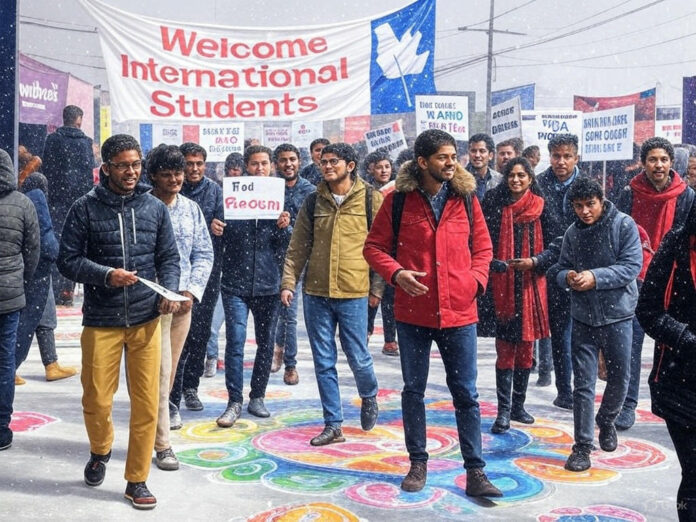International students from India have been linked to petty crimes in Canada. Reports highlight incidents of theft, shoplifting, snatching, lawlessness, and even prostitution.
A 22-year-old Indian student faced arrest in Brampton, Ontario, in January 2025. He allegedly shoplifted electronics worth $1,500 from a local store. Security cameras caught him hiding items in his backpack. Peel Regional Police charged him with theft under $5,000.
In Vancouver, a 19-year-old Punjabi student snatched a purse from a woman in March 2024. The incident occurred near a busy transit station. Witnesses reported he fled on foot, but police apprehended him nearby. He now faces robbery charges.
Toronto saw a group of Indian students involved in a theft ring in late 2024. They targeted retail stores, stealing clothing and accessories. Police arrested three students, aged 20-23, after a sting operation. The stolen goods totaled over $10,000.
A disturbing case emerged in Edmonton in November 2024. A 21-year-old female student from Punjab was linked to prostitution. Authorities found her advertising services online. She confessed to police that financial desperation drove her actions.
Factors Driving These Behaviors
Economic pressure often pushes students into crime. Many arrive in Canada with high tuition debts, and part-time job wages fail to cover living costs. For instance, the Brampton student admitted to stealing money to send home.
Next, limited job opportunities play a role—strict work visa rules cap hours at 20 per week. Like the Vancouver snatcher, some students turn to quick cash through crime. Job scarcity in competitive cities worsens this trend.
Cultural adjustment struggles also contribute. Some find moving from Punjab’s rural settings to Canada’s urban life overwhelming. The Toronto theft ring members cited isolation and peer influence as triggers. They joined local groups that normalized petty crime.
Additionally, lax oversight emboldens risky behavior. Student visas lack strict monitoring. The Edmonton case revealed she operated unnoticed for months. Weak community support leaves students vulnerable to exploitation.
Broader Implications
These incidents spark debates on immigration policies. Canadian officials note a rise in such crimes since 2023. Punjab students, a growing demographic, face scrutiny. Yet, not all engage in lawlessness—many thrive academically.
Economic strain and adaptation challenges fuel this trend. Addressing root causes requires better support systems. Enhanced job access and counseling could curb these behaviors. For now, these cases highlight a complex issue needing attention.

